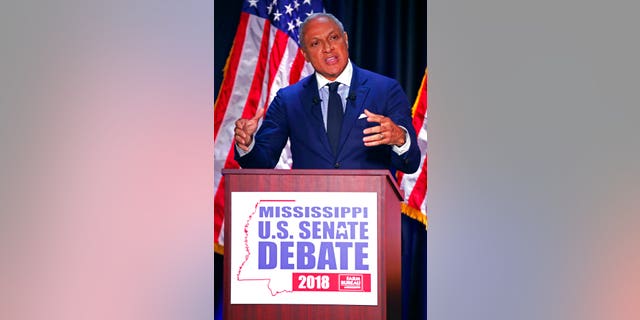Sen. Kamala Harris is proposing a new tax credit. Sen. Cory Booker proposes "opportunity accounts."
(Associated Press)
Two
Democrats in the U.S. Senate – both said to be eyeing the party’s 2020
presidential nomination -- recently announced so-called “basic income”
plans for America’s lower-income families. A liberal publication,
meanwhile, says neither plan goes far enough to aid families, and the
government should instead just start “writing them checks.”
But the
Heritage Foundation argues that such plans tend to fail, in part because they tend to remove the incentive for work.
In
October, Sen. Kamala Harris, D-Calif., unveiled her LIFT the Middle
Class Act. It would provide a tax credit of up to $6,000 a year to
families earning less than $100,000 a year, and a credit of up to $3,000
for those earning less than $50,000 a year,
the Washington Times reported.
“Middle
class families deserve to know that one unexpected cost won’t lead to a
financial emergency,” Harris tweeted last month, when the plan was
unveiled. “The LIFT the Middle Class Act that I introduced would help
address the rising costs of housing, tuition, childcare, and more.”
But the nonpartisan
Tax Policy Center estimated earlier this month
that Harris’s plan would add $2.8 trillion to the federal deficit over
its first decade and another $3.4 billion over its second decade,
the Washington Post reported.
Harris
proposed paying for her plan by canceling parts of the Republican
Party’s tax cuts and charging a new tax on banks and other financial
institutions, the report said.
Meanwhile, Sen. Cory Booker,
D-N.J., proposed last month the creation of “opportunity accounts” for
the nation’s children, which could grow to about $46,000 per child by
the time they turn 18,
Business Insider reported.
“Today,
nearly one in three American families have zero to negative wealth, and
it’s hard to get ahead if you begin life behind the starting line,”
Booker said of the plan,
the Washington Times reported.
Watchdog.org estimated that Booker’s plan would cost American taxpayers at least $60 billion annually.
But liberal publication the Nation claims that both wealth distribution plans fall short.
“Harris’s plan suffers from two problems,”
author Bryce Covert writes in the publication.
“The first is who she leaves out. By matching only the income that poor
families earn from work, it omits those who don’t earn anything.”
“Harris’s
plan suffers from two problems. The first is who she leaves out. By
matching only the income that poor families earn from work, it omits
those who don’t earn anything.”
— Bryce Covert, writing in the Nation
The
second problem with Harris’s plan, he writes, “is that she still relies
on giving money to families through the tax code, an opaque and
complicated way of doing it.”
Covert then hails Booker’s plan for
“sending money straight to the people who need it,” but says it
“mistimes the assistance,” providing it when youths reach adulthood,
“when most families are more economically stable.”
He suggests
instead that both plans be set aside in favor of Russell Sage Foundation
researchers’ suggestion that parents be sent “at least $250 a month for
each child,” a plan estimated to cost U.S. taxpayers $190 billion per
year.
“That’s still less than what’s been estimated for Harris’s
plan,” Covert writes, “and less than the recent Republican tax cuts are
likely to cost over the next three years.”
But the Heritage
Foundation’s Vijay Menon wrote last month that plans similar to the
recent liberal proposals have been tried before – only to fail.
Menon
writes that a “negative income tax” experiment ran in six states from
1968 to 1980, and was documented by libertarian writer Charles Murray,
author of “Losing Ground.”
“In ‘Losing Ground,’” Menon writes,
“Murray concluded that the effect of the negative income tax on reducing
work was ‘unambiguous and strong.’ ”
“If recipients lost their
jobs during the experiment,” Menon notes, “they experienced
significantly longer spells of unemployment compared with non-recipients
— more than two months longer for husbands, almost a year longer for
wives, and longer still for single mothers.”
In summary, Menon writes, such plans are “a misguided approach.”
“Policy
should be designed to reward work, rather than replace it,” Menon
writes. Therefore, a better alternative to a universal basic income
would be to expand the earned income tax credit.”






















